Stay Hydrated: Drink Plenty of Water to Boost Metabolism and Improve Overall Health

Water is often referred to as the elixir of life, and for good reason. It is a fundamental component of the human body, making up about 60% of an adult’s body weight. From regulating body temperature to supporting digestion, water plays a crucial role in maintaining overall health. One of its lesser-known but equally important benefits is its ability to boost metabolism, which can aid in weight management and improve energy levels. This article will explore the numerous ways in which staying hydrated can enhance your health and provide practical tips to ensure you get enough water every day.
1. The Role of Water in the Body
1.1 Vital Functions of Water
Water is involved in almost every physiological process in the body. Here are some of the key functions:

- Regulates Body Temperature: Through sweating and respiration.
- Facilitates Digestion: Helps in the breakdown of food and absorption of nutrients.
- Transports Nutrients and Oxygen: Carries essential nutrients and oxygen to cells.
- Removes Waste: Aids in the excretion of waste products via urine and sweat.
- Lubricates Joints: Keeps joints and tissues pliable and reduces friction.
1.2 Water Composition in Organs
Different organs in the body rely on water to function properly:
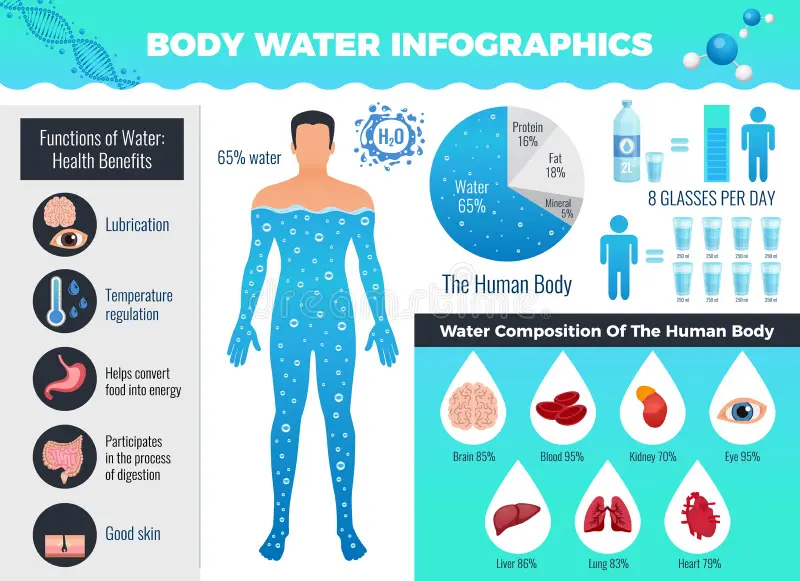
- Brain: Composed of about 73% water, essential for cognitive function.
- Muscles: About 75% water, crucial for muscle contraction and performance.
- Lungs: Approximately 83% water, aiding in oxygen exchange.
2. Hydration and Metabolism
2.1 Water’s Role in Boosting Metabolism
Metabolism refers to the chemical processes that occur within the body to maintain life. Water is an integral part of these processes:
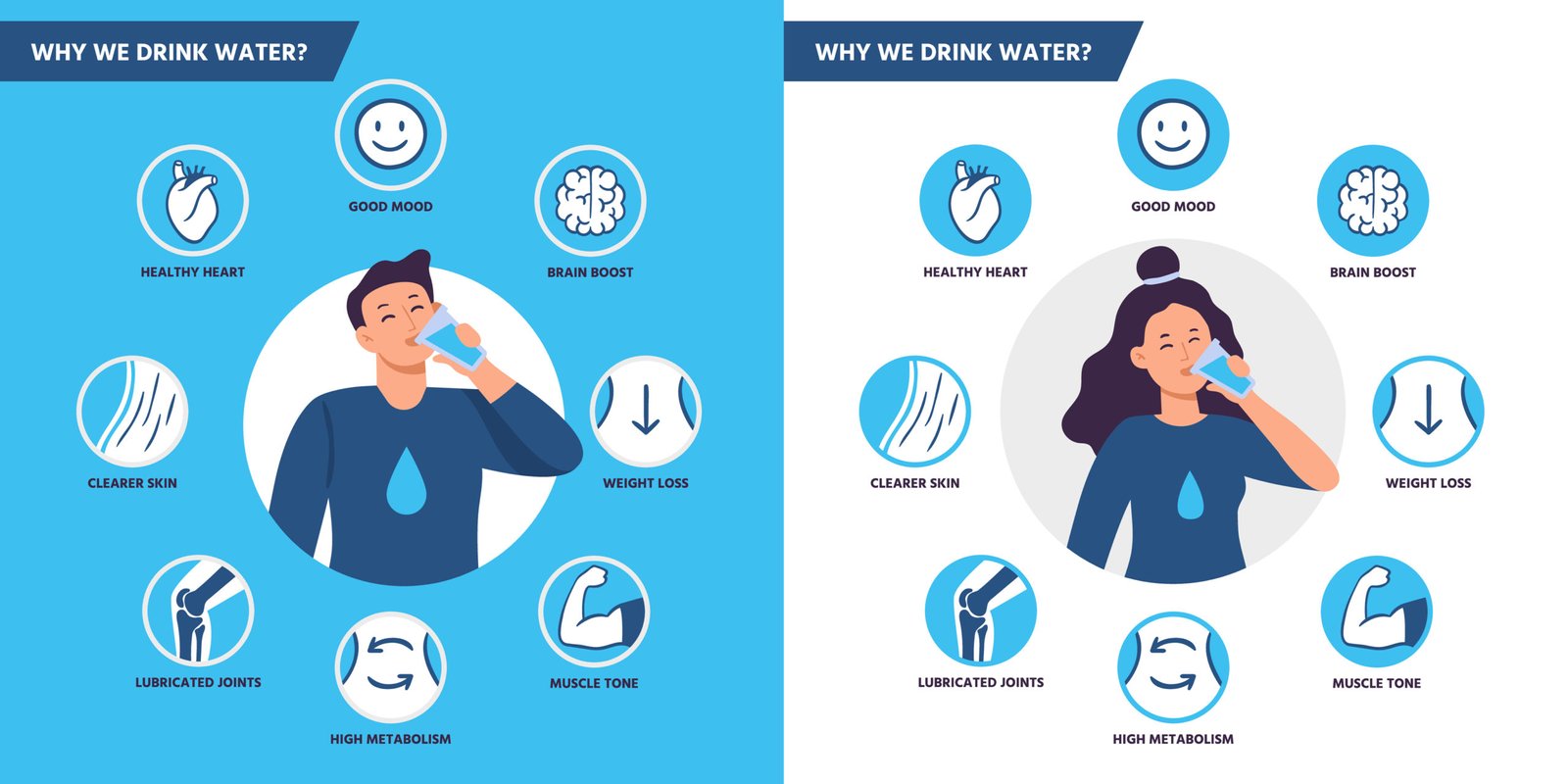
- Thermogenesis: Drinking water can induce thermogenesis, where the body generates heat and burns calories.
- Cellular Metabolism: Water is a solvent for biochemical reactions in cells, including energy production.
2.2 Studies on Water and Metabolism
Research has shown that staying hydrated can have a significant impact on metabolic rate:

- A study published in The Journal of Clinical Endocrinology & Metabolism found that drinking 500 ml of water increased metabolic rate by 30% for about 30-40 minutes.
- Dehydration has been linked to decreased metabolic efficiency, meaning the body burns fewer calories.
3. Health Benefits of Staying Hydrated
3.1 Enhanced Physical Performance
Hydration is crucial for athletes and anyone engaging in physical activity:

- Prevents muscle cramps and fatigue.
- Improves endurance and strength.
- Maintains optimal heart rate and body temperature during exercise.
3.2 Improved Cognitive Function
Water is essential for maintaining mental clarity and focus:

- Dehydration can lead to impaired concentration, mood swings, and reduced short-term memory.
- Staying hydrated ensures proper brain function, improving problem-solving skills and alertness.
3.3 Weight Management
Drinking water can aid in weight loss and maintenance:

- Appetite Control: Often, thirst is mistaken for hunger. Drinking water before meals can reduce calorie intake.
- Calorie-Free Substitute: Replacing sugary drinks with water reduces overall calorie consumption.
3.4 Detoxification and Kidney Health
Water plays a key role in flushing out toxins:

- Supports kidney function by helping to eliminate waste products through urine.
- Reduces the risk of kidney stones by diluting minerals and salts.
3.5 Enhanced Skin Health
Adequate hydration contributes to healthy, glowing skin:

- Improves elasticity and reduces dryness.
- Helps in the prevention of acne and other skin conditions.
4. Signs of Dehydration and Its Risks
4.1 Common Symptoms
Dehydration occurs when the body loses more water than it takes in. Early signs include:
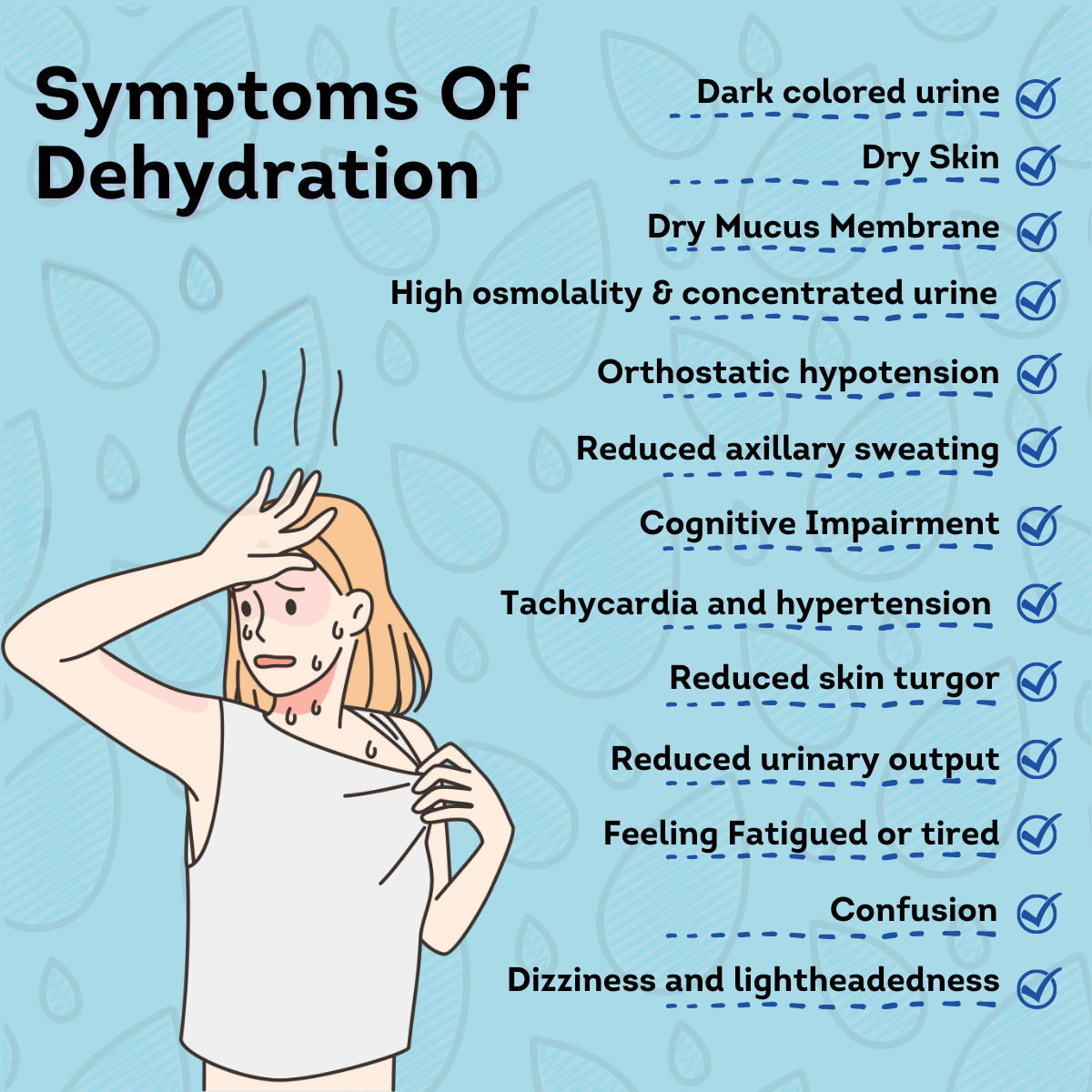
- Thirst and dry mouth.
- Dark yellow urine.
- Fatigue and dizziness.
- Headaches.
4.2 Severe Dehydration Risks
If left unchecked, dehydration can lead to serious health complications:

- Heatstroke.
- Kidney damage.
- Hypovolemic shock, a life-threatening condition due to low blood volume.
5. How Much Water Do You Need?
5.1 General Recommendations
The amount of water a person needs varies depending on age, gender, activity level, and climate. General guidelines include:

- Men: About 3.7 liters (125 ounces) per day.
- Women: About 2.7 liters (91 ounces) per day.
5.2 Adjusting for Activity and Climate

- Exercise: Increase water intake by an additional 500-1,000 ml (17-34 ounces) for every hour of intense physical activity.
- Hot Climates: Increase fluid intake to compensate for higher sweat losses.
6. Practical Tips for Staying Hydrated
6.1 Incorporate Water-Rich Foods
Fruits and vegetables with high water content can contribute to daily hydration:
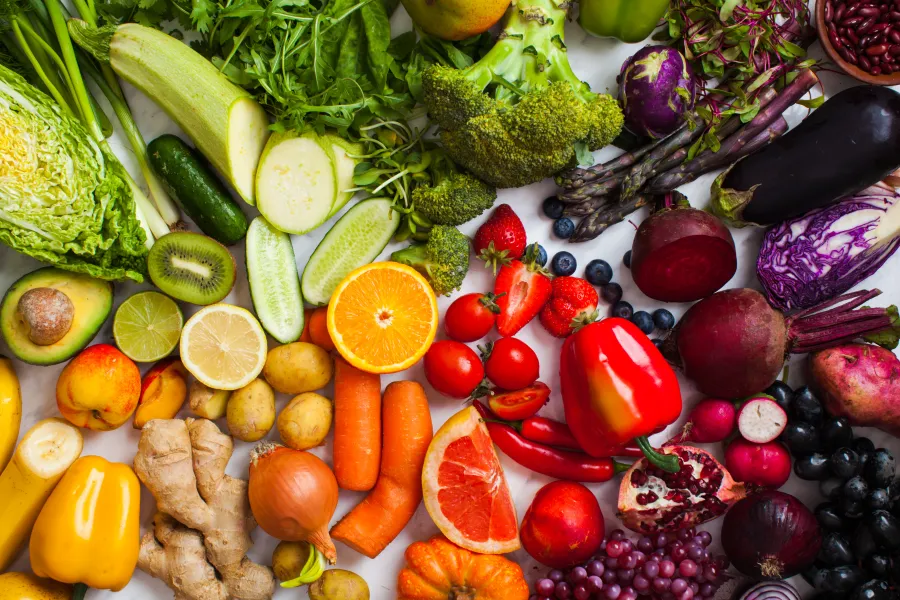
- Cucumber: 95% water.
- Watermelon: 92% water.
- Oranges: 87% water.
6.2 Create a Hydration Routine
Develop habits that ensure consistent water intake:
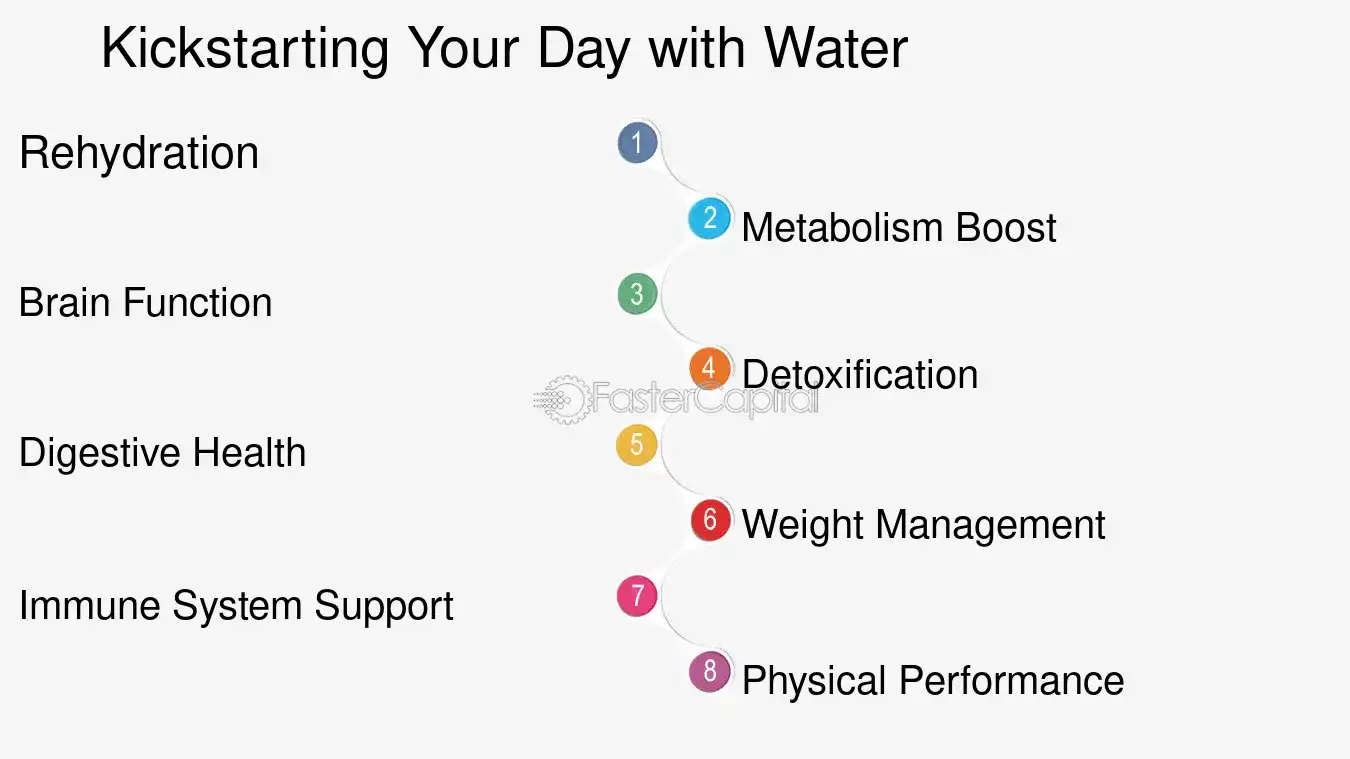
- Start your day with a glass of water.
- Carry a reusable water bottle.
- Set reminders to drink water throughout the day.
6.3 Flavor Your Water
If plain water feels monotonous, enhance its taste naturally:
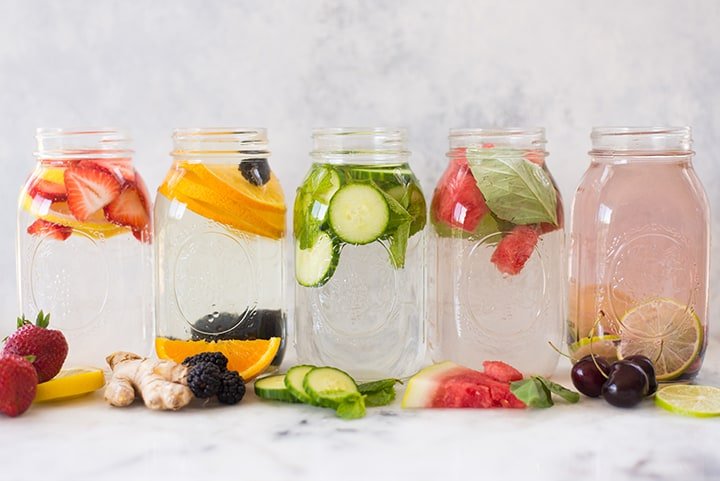
- Add slices of lemon, cucumber, or berries.
- Infuse water with herbs like mint or basil.
6.4 Monitor Your Hydration
Keep track of your fluid intake and physical signs of hydration:
- Use smartphone apps to log water consumption.
- Check the color of your urine; light yellow indicates good hydration.
7. Addressing Common Myths About Hydration
7.1 Myth: You Only Need Water When Thirsty

By the time you feel thirsty, your body is already partially dehydrated. Proactive hydration is key to maintaining optimal levels.
7.2 Myth: Caffeinated Drinks Dehydrate You

While caffeine has a mild diuretic effect, moderate consumption of coffee or tea still contributes to overall hydration.
7.3 Myth: Drinking Too Much Water Is Always Safe

Overhydration, or water intoxication, can lead to hyponatremia, a dangerous condition where sodium levels in the blood become too diluted.
8. Special Considerations for Certain Groups
8.1 Athletes
Athletes have higher hydration needs due to increased sweat loss. They should:

- Use sports drinks for prolonged, intense exercise to replenish electrolytes.
- Monitor weight loss during workouts to estimate fluid replacement needs.
8.2 Older Adults
Aging can reduce the sensation of thirst, making older adults more susceptible to dehydration. They should:

- Drink fluids regularly, even if not feeling thirsty.
- Include hydrating foods in their diets.
8.3 Children
Children are more prone to dehydration, especially during play or sports. Encourage them to:

- Take regular water breaks.
- Carry water bottles to school and activities.
9. Conclusion
Staying hydrated is one of the simplest yet most powerful steps you can take to boost your metabolism and improve overall health. Water supports essential bodily functions, enhances physical and cognitive performance, aids in weight management, and promotes long-term well-being. By incorporating small, consistent hydration habits into your daily routine, you can unlock the benefits of optimal hydration and set the foundation for a healthier, more energized life.




